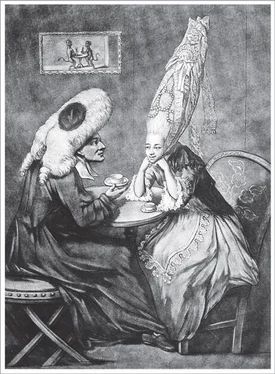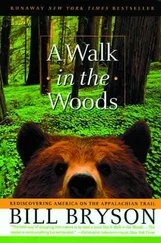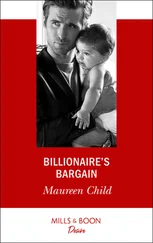Bill Bryson - At Home
Здесь есть возможность читать онлайн «Bill Bryson - At Home» весь текст электронной книги совершенно бесплатно (целиком полную версию без сокращений). В некоторых случаях можно слушать аудио, скачать через торрент в формате fb2 и присутствует краткое содержание. Жанр: Старинная литература, на английском языке. Описание произведения, (предисловие) а так же отзывы посетителей доступны на портале библиотеки ЛибКат.
- Название:At Home
- Автор:
- Жанр:
- Год:неизвестен
- ISBN:нет данных
- Рейтинг книги:4 / 5. Голосов: 1
-
Избранное:Добавить в избранное
- Отзывы:
-
Ваша оценка:
- 80
- 1
- 2
- 3
- 4
- 5
At Home: краткое содержание, описание и аннотация
Предлагаем к чтению аннотацию, описание, краткое содержание или предисловие (зависит от того, что написал сам автор книги «At Home»). Если вы не нашли необходимую информацию о книге — напишите в комментариях, мы постараемся отыскать её.
At Home — читать онлайн бесплатно полную книгу (весь текст) целиком
Ниже представлен текст книги, разбитый по страницам. Система сохранения места последней прочитанной страницы, позволяет с удобством читать онлайн бесплатно книгу «At Home», без необходимости каждый раз заново искать на чём Вы остановились. Поставьте закладку, и сможете в любой момент перейти на страницу, на которой закончили чтение.
Интервал:
Закладка:
Meanwhile, it turned out that Funk’s vitamines were not nearly as coherent a group as originally thought. Vitamin B proved to be not one vitamin but several, which is why we have B 1, B 2, and so on. To add to the confusion, vitamin K has nothing to do with an alphabetical sequence. It was called K because its Danish discoverer, Henrik Dam, dubbed it Koagulations vitamin for its role in blood clotting. Later, folic acid (sometimes called vitamin B 9) was added to the group. Two other vitamins—pantothenic acid and biotin—don’t have numbers or, come to that, much profile, but that is largely because they almost never cause us problems. No human has yet been found with insufficient quantities of either.
The vitamins are, in short, a disorderly bunch. It is almost impossible to define them in a way that comfortably embraces them all. A standard textbook definition is that a vitamin is “an organic molecule not made in the human body which is required in small amounts to sustain normal metabolism,” but in fact vitamin K is made in the body, by bacteria in the gut. Vitamin D, one of the most vital substances of all, is actually a hormone, and most of it comes to us not through diet but through the magical action of sunlight on skin.
Vitamins are curious things. It is odd, to begin with, that we cannot produce them ourselves when we are so very dependent on them for our well-being. If a potato can produce vitamin C, why can’t we? Within the animal kingdom only humans and guinea pigs are unable to synthesize vitamin C in their own bodies. Why us and guinea pigs? No point asking. Nobody knows. The other remarkable thing about vitamins is the striking disproportion between dosage and effect. Put simply, we need vitamins a lot, but we don’t need a lot of them. Three ounces of vitamin A, lightly but evenly distributed, will keep you purring for a lifetime. Your B 1requirement is even less—just one ounce spread over seventy or eighty years. But just try doing without those energizing specks and see how long it is before you start to fall to pieces.
The same considerations exactly apply with the vitamins’ fellow particles the minerals. The fundamental difference between vitamins and minerals is that vitamins come from the world of living things—from plants and bacteria and so on—and minerals do not. In a dietary context, minerals is simply another name for the chemical elements—calcium, iron, iodine, potassium, and the like—that sustain us. Ninety-two elements occur naturally on Earth, though some in only very tiny amounts. Francium, for instance, is so rare that it is thought that the whole planet may contain just twenty francium atoms at any given time. Of the rest, most pass through our bodies at some time or other, sometimes quite regularly, but whether they are important or not is still often unknown. You have a lot of bromine distributed through your tissues. It behaves as if it is there for a purpose, but nobody yet has worked out what that purpose might be. Remove zinc from your diet and you will get a condition known as hypogeusia, in which your taste buds stop working, making food boring or even revolting, but until as recently as 1977 zinc was thought to have no role in diet at all.
Several elements, like mercury, thallium, and lead, seem to do nothing good for us and are positively detrimental if consumed excessively.* Others are also unnecessary but far more benign, of which the most notable is gold. That is why gold can be used as a filling for teeth: it doesn’t do you any harm. Of the rest, some twenty-two elements are known or thought to be of central importance to life, according to Essentials of Medical Geology . We are certain about sixteen of them; the other six we merely think are vital. Nutrition is a remarkably inexact science. Consider magnesium, which is necessary for the successful management of proteins within the cells. Magnesium abounds in beans, cereals, and leafy vegetables, but modern food processing reduces the magnesium content by up to 90 percent—effectively annihilates it. So most of us are not taking in anything like the recommended daily amount—not that anyone really knows what that amount should be. Nor can anybody specify the consequences of magnesium deficiency. We could be taking years off our lives, or points off our IQ, or the edge off our memory, or almost any other bad thing you care to suggest. We just don’t know. Arsenic is similarly uncertain. Obviously, if you get too much in your system you will very quickly wish you hadn’t. But we all get a little arsenic in our diets, and some authorities are absolutely certain it is vital to our well-being in these tiny amounts. Others are not so sure.
Which brings us back, in a very roundabout way, to salt. Of all the minerals, the most vital in dietary terms is sodium, which we mostly consume in the form of sodium chloride—table salt.* Here the problem is that we are getting not too little, but possibly way too much. We don’t need all that much—200 milligrams a day, about what you would get with six or eight vigorous shakes of a salt cellar—but we take in about sixty times that amount on average. In a normal diet it is almost impossible not to overload on sodium, because there is so much salt in the processed foods we eat with such ravenous devotion. Often it is heaped into foods that don’t seem salty at all—breakfast cereals, prepared soups, and ice cream, for instance. Who would guess that an ounce of cornflakes contains more salt than an ounce of salted peanuts? Or that the contents of one can of soup—almost any can at all—will considerably exceed the total daily recommended salt allowance for an adult?
Archaeological evidence shows that once people settled down in agricultural communities they began to suffer salt deficiencies—something that they had not experienced before—and so had to make a special effort to find salt and get it into their diet. One of the mysteries of history is how they knew they needed to do so, because the absence of salt in the diet awakes no craving. It makes you feel bad and eventually it kills you—without the chloride in salt, cells simply shut down like an engine without fuel—but at no point would a human being think: “Gosh, I could sure do with some salt.” So how they knew to go searching for it is an interesting question, particularly as in some places getting it required some ingenuity. Ancient Britons, for instance, heated sticks on a beach, then doused them in the sea and scraped the salt off. Aztecs, by contrast, acquired salt by evaporating their own urine. These are not intuitive acts, to put it mildly. Yet getting salt into the diet is one of the most profound urges in nature, and it is a universal one. Every society in the world in which salt is freely available consumes, on average, forty times the amount needed to sustain life. We just can’t get enough of the stuff.
Salt is now so ubiquitous and cheap that we forget how intensely desirable it was once, but for much of history it drove men to the edges of the world. Salt was needed to preserve meats and other foods, and so was often required in vast quantities: Henry VIII had twenty-five thousand oxen slaughtered and salted for one military campaign in 1513. So salt was a hugely strategic resource. In the Middle Ages caravans of as many as forty thousand camels—enough to form a column seventy miles long—conveyed salt across the Sahara from Timbuktu to the lively markets of the Mediterranean.
People have fought wars over it and been sold into slavery for it. So salt has caused some suffering in its time. But that is nothing compared with the hardship and bloodshed and murderous avarice associated with a range of tiny foodstuffs that we don’t need at all and could do perfectly well without. I refer to salt’s complements in the condiment world: the spices. Nobody would die without spices, but plenty have died for them.
Читать дальшеИнтервал:
Закладка:
Похожие книги на «At Home»
Представляем Вашему вниманию похожие книги на «At Home» списком для выбора. Мы отобрали схожую по названию и смыслу литературу в надежде предоставить читателям больше вариантов отыскать новые, интересные, ещё непрочитанные произведения.
Обсуждение, отзывы о книге «At Home» и просто собственные мнения читателей. Оставьте ваши комментарии, напишите, что Вы думаете о произведении, его смысле или главных героях. Укажите что конкретно понравилось, а что нет, и почему Вы так считаете.












